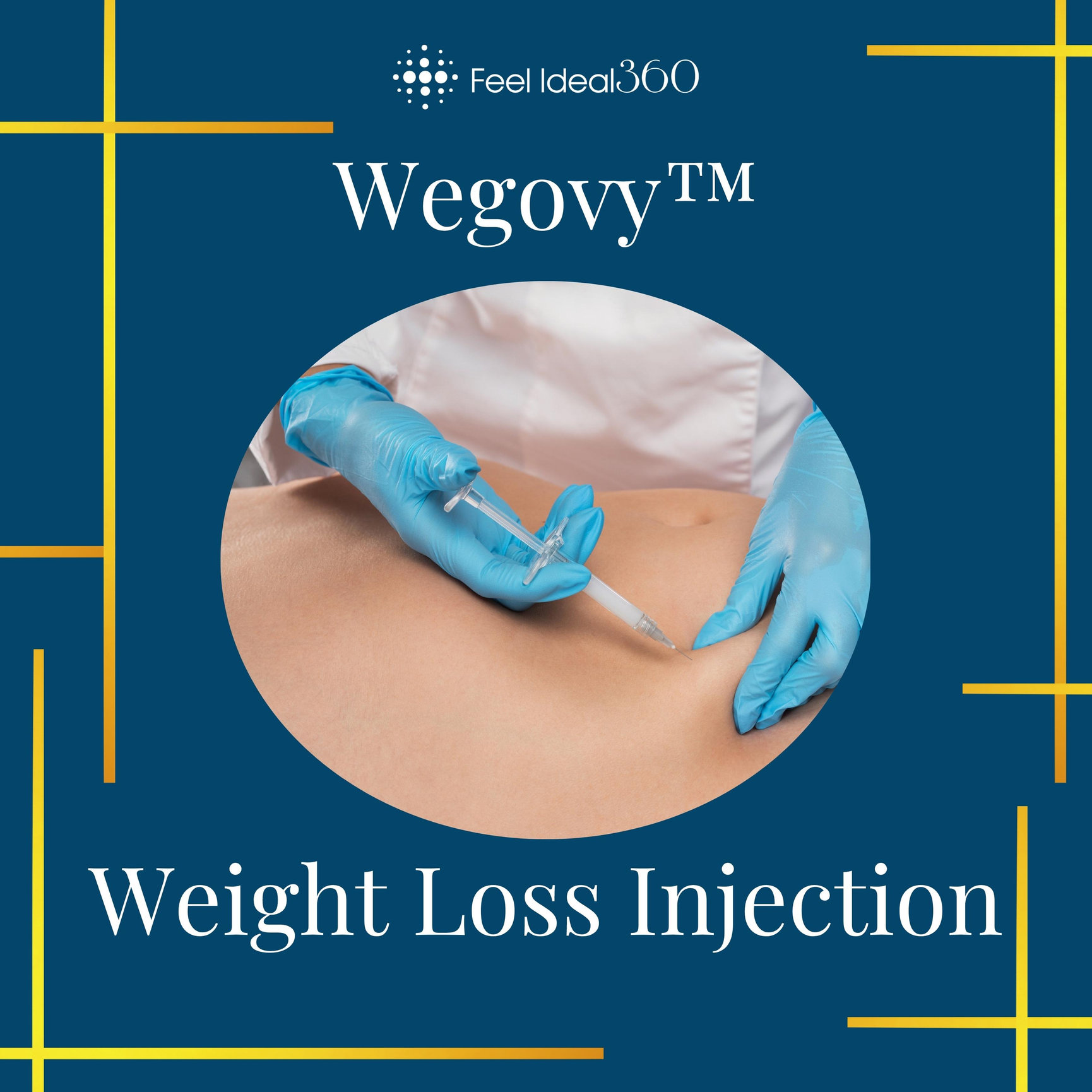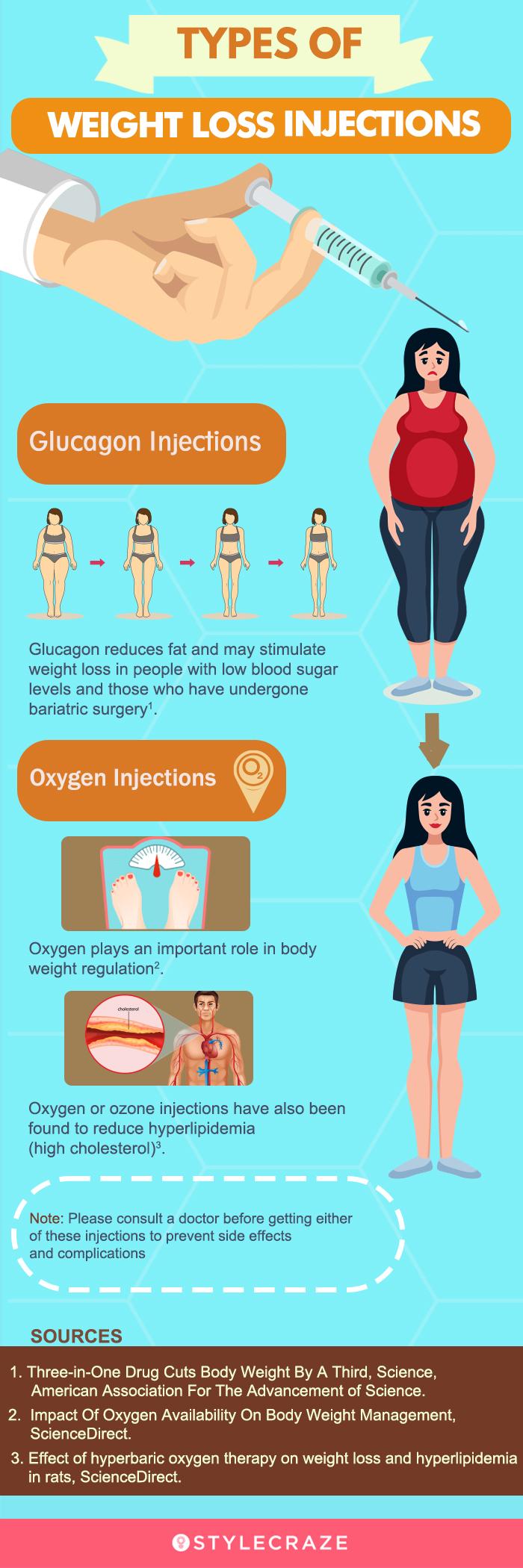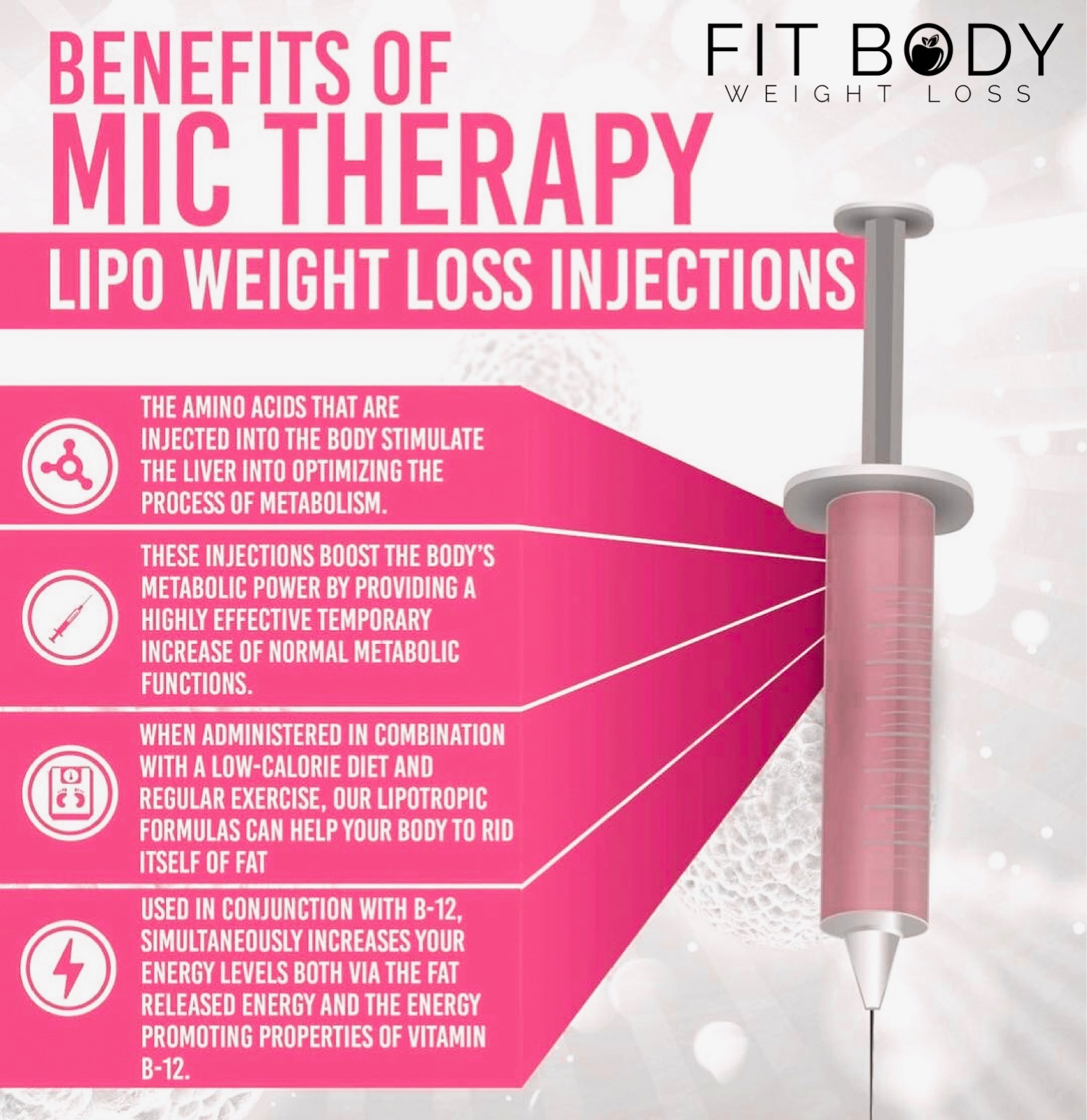In recent years, weight loss injections have gained popularity as an effective solution for individuals seeking to shed excess pounds. This comprehensive guide explores the various benefits and methods associated with these injections, allowing you to make an informed decision about whether this approach is right for you. Weight loss injections come in several forms, including hormones that aid in fat reduction, appetite suppressants, and metabolic boosters, each with unique mechanisms and advantages. By understanding how these injections work, you can better assess their potential role in your weight management journey.
Additionally, this guide addresses critical aspects of choosing the right injection method, considering factors such as safety, efficacy, and compatibility with your lifestyle. It’s essential to consult with healthcare professionals to tailor the best weight loss strategy for your individual needs. Whether you’re struggling with stubborn fat or seeking to enhance your weight loss efforts, weight loss injections could be a valuable tool in your arsenal. Join us as we delve deeper into the world of weight loss injections, simplifying the choices available and highlighting their potential to transform your approach to health and fitness.

weight loss injections
Benefits of Weight Loss Injections: Are They Right for You?
Weight loss injections have gained popularity as an alternative method to assist individuals in achieving their weight loss goals. One of the significant benefits of these injections is their ability to significantly boost metabolism. By enhancing the body’s metabolic rate, these injections can help burn calories more efficiently, making it easier to shed excess pounds.
Another critical advantage of weight loss injections is appetite suppression. Many individuals struggle with controlling their cravings and managing portion sizes. Injections designed for weight loss can help diminish feelings of hunger, thereby allowing individuals to adhere to a calorie-restricted diet more effectively. This aspect is especially beneficial for those who find themselves snacking frequently or feeling hungry between meals.
Furthermore, weight loss injections may facilitate enhanced fat burning, enabling the body to target stubborn fat stores. This is particularly useful for individuals who have difficulty losing weight in specific areas, such as the abdomen and thighs. By encouraging the body to utilize fat as a primary energy source, these injections can contribute to more noticeable weight loss results.
health risks associated with weight loss injections. Side effects can include nausea, diarrhea, or even more severe complications depending on the ingredients used. Consulting with a healthcare professional is crucial to ensure the method is suitable for your health condition.

weight loss injections
Different Methods of Weight Loss Injections: Options Explained
Weight loss injections offer a range of methods for delivering active ingredients effectively into the body. The most common methods include intramuscular, subcutaneous, and intravenous injection options, each with unique characteristics and effectiveness.
Intramuscular injections are administered directly into a muscle. This method allows for quicker absorption of the medication into the bloodstream, making it an effective option for those seeking rapid results. The sites commonly used for intramuscular injections include the thigh, upper arm, and buttocks. This method is often preferred for weight loss agents that require a significant dose to be effective.
Subcutaneous injections, on the other hand, are given into the fatty layer just beneath the skin. This method is typically associated with less discomfort and is easier to self-administer, which can improve patient compliance. Subcutaneous injections may take slightly longer to achieve their therapeutic effects compared to intramuscular injections. Options like GLP-1 receptor agonists are commonly delivered this way, offering benefits in appetite control and metabolic function.
Intravenous injections provide immediate access to circulation, ensuring that the active ingredients work quickly. While effective, this method typically requires healthcare professional administration and is less common for weight loss treatments. It can be a viable option for patients with specific medical needs or those who are hospitalized. IV therapy can offer a quick boost of vitamins or medications that support weight loss efforts.
Ultimately, the choice between these methods should be guided by factors such as the specific medication, desired outcomes, and individual patient circumstances. Understanding the implications of each method can help in making informed decisions regarding weight loss strategies.

weight loss injections
How to Choose the Right Weight Loss Injection for Your Needs
Choosing the right weight loss injection can be a daunting task, especially with various options available on the market. It’s crucial to align your choice with your individual health goals, medical history, and lifestyle. Before making a decision, consult with a healthcare professional who specializes in weight management to guide you through the options suited for you.
First, assess your health goals. Are you looking for rapid weight loss, or are you more interested in maintaining a steady, gradual reduction? Some injections target appetite suppression, while others focus on metabolism enhancement. Understanding what you aim to achieve will help in narrowing down your options.
Next, consider your medical history. Some individuals may have pre-existing conditions that could be aggravated by specific treatments. Inform your healthcare provider about any medications you are currently taking, as interactions can occur. Additionally, ensure you discuss any allergies you may have that could affect your reaction to weight loss injections.
Your lifestyle and daily routines are also critical factors to examine. If you lead a busy life, an injection that requires frequent visits to a clinic may not be practical. Conversely, some injections are designed for at-home use and can be more convenient for those with tight schedules. Make sure to evaluate the injection frequency and administration method that aligns best with your routine.
Also, investigate the side effects and effectiveness of each weight loss injection. Researching user reviews and clinical studies can provide insight into what you can realistically expect. Being informed will empower you in making the best choice tailored to your needs.

weight loss injections
The Science Behind Weight Loss Injections: What Research Says
Recent advancements in the realm of obesity treatment have sparked interest in weight loss injections. These injections often utilize compounds such as GLP-1 receptor agonists, which mimic the effects of hormones regulating hunger and insulin. Clinical studies indicate that these injectable obesity medications can lead to significant weight reduction when combined with lifestyle changes.
A notable clinical trial published in major medical journals demonstrated that participants receiving these injections experienced an average weight loss of 15-20% over 6 to 12 months. This research not only highlights the potential benefits of pharmaceutical weight loss solutions but also provides insight into the mechanisms by which they operate. The appetite-suppressing effects can be particularly beneficial for individuals struggling with chronic obesity.
However, while the results are promising, there are limitations to consider. Side effects such as nausea, vomiting, and gastrointestinal discomfort have been reported, raising questions about the long-term sustainability of these treatments. Experts emphasize the importance of incorporating healthy lifestyle changes alongside these injections to enhance their efficacy and maintain weight loss.
Moreover, ongoing research is crucial to understand the long-term effects of weight loss injections on overall health. Some studies have raised concerns regarding potential risks related to cardiovascular health and other metabolic disorders. Therefore, comprehensive evaluations and continual monitoring of patients undergoing these treatments are essential.
In conclusion, the scientific community continues to explore the intricate dynamics between weight loss injections and effective obesity management. As more research emerges, clarity on the efficacy, safety, and long-term outcomes of these treatments will better equip healthcare professionals and patients in their weight loss journeys.

weight loss injections
Side Effects and Risks of Weight Loss Injections: What to Expect
Weight loss injections are increasingly popular for individuals seeking effective solutions for shedding pounds. However, it is crucial to understand the potential side effects and risks involved before starting any regimen. Commonly used injections, such as GLP-1 receptor agonists, can lead to gastrointestinal issues like nausea, vomiting, and diarrhea. While many find these side effects manageable, they can be distressing for some users.
Another important consideration is the potential for contraindications. Individuals with a history of pancreatitis, thyroid cancer, or specific autoimmune disorders should approach weight loss injections with caution. Consulting a healthcare provider is essential to identify any medical conditions that may preclude safe use.
Furthermore, it’s vital to be aware of the risk of prolonged use. Some studies suggest potential metabolic changes with long-term administration of weight loss injections, leading to adverse effects on overall health. Additionally, dependency on these injections without lifestyle changes can lead to weight regain.
Patients should also be aware of allergic reactions that may occur, albeit rarely. Symptoms can range from mild skin reactions to severe anaphylaxis. Monitoring any unusual physical responses after an injection is essential for early identification of serious side effects.
Before starting any weight loss injection regimen, individuals are encouraged to review safety considerations with their healthcare provider. This includes discussing current medications, potential interactions, and establishing realistic weight loss goals that emphasize a balanced approach.
Your healthcare provider can provide tailored advice and assistance to navigate the complexities of weight loss injections. Being well-informed can significantly enhance the safety and efficacy of your weight management journey.
Cost of Weight Loss Injections: Budgeting for Your Transformation
When considering weight loss injections, it’s essential to explore the typical costs associated with these treatments. The price can vary significantly, often ranging from $100 to $800 per month, depending on the type of injection and the frequency of administration. It’s vital to understand that these costs may include initial consultations, ongoing monitoring, and the actual medications themselves.
Insurance coverage for weight loss injections is another critical factor to consider. Many insurance plans do not cover these treatments unless they are deemed medically necessary. This lack of coverage can lead to out-of-pocket expenses that may strain your budget. It’s important to check with your insurance provider regarding your specific plan to understand what is covered and what isn’t.
Managing expenses while pursuing weight loss through injections involves careful budgeting. One effective strategy is to explore various clinics and providers to compare pricing. Some clinics offer payment plans or discounts for upfront payments, making it easier to fit these expenses into your budget. Additionally, some patients may consider alternative weight loss methods or lifestyle changes that could complement or even replace the need for injections, potentially reducing overall costs.
Another approach is to seek out programs that focus on holistic weight loss, where nutrition, exercise, and psychological support are integrated, often at a lower cost than injections alone. Lastly, keeping track of expenses and adjusting your plan as needed ensures that you are taking a financially sound approach to your weight loss journey.
Real-Life Success Stories: Weight Loss Injections Transformations
Weight loss injections are becoming increasingly popular as a solution for those struggling with obesity. Numerous case studies highlight the significant impact these injections can have on individuals’ lives. For instance, one success story features Sarah, a 35-year-old woman who lost 40 pounds within six months of starting her weight loss injection regimen. She faced years of dieting without success, but with the help of these injections, Sarah improved her metabolic rate and reduced cravings.
Another inspiring case is Mark, a 42-year-old man who managed to shed 60 pounds in just under a year. Before discovering weight loss injections, he struggled with high blood pressure and depression linked to his weight. Post-treatment, Mark not only lost weight but also experienced a dramatic improvement in his overall health, illustrating how these injections can contribute to a holistic change in lifestyle and well-being.
| Name | Initial Weight | Weight After Treatment | Weight Loss in Pounds |
|---|---|---|---|
| Sarah | 180 | 140 | 40 |
| Mark | 250 | 190 | 60 |
Testimonials from users reinforce the emotional benefits of weight loss injections. Many report increased confidence, improved mental health, and a renewed zest for life. The effectiveness of these treatments continues to be backed by scientific research, further encouraging individuals to consider them as a viable weight loss solution.
For those contemplating weight loss injections, the real-world impacts illustrated by these stories serve as powerful motivation. By sharing their journeys, these individuals demonstrate that achieving one’s weight loss goals is possible, paving the way for others to embark on a similar path.
FAQ Section: Weight Loss Injections
What are weight loss injections?
Weight loss injections are medical treatments that typically involve hormones or other compounds aimed at aiding weight loss. These may include substances like human Chorionic Gonadotropin (hCG) or peptide-based medications, which can help reduce appetite, enhance metabolism, or promote fat burning.
How do weight loss injections work?
Weight loss injections work by influencing various physiological processes in the body. For example, some injections may help regulate hormones related to hunger and satiety, while others may increase the body’s metabolism or promote fat breakdown.
Aren’t weight loss injections risky?
Like any medical treatment, weight loss injections carry potential risks and side effects. It’s important to consult with a healthcare provider to discuss any possible adverse effects and to determine if this form of treatment is appropriate for your individual health needs.
Who is a good candidate for weight loss injections?
Good candidates for weight loss injections typically include individuals who have struggled with weight loss through diet and exercise alone, and who are looking for additional support. It’s essential to have a thorough consultation with a healthcare professional to assess suitability based on individual health conditions and goals.
How long does it take to see results?
Results from weight loss injections can vary widely depending on the individual, their diet, exercise routine, and the specific type of injection used. Some people may start to see results in a few weeks, while others may take longer to notice significant changes.
Are weight loss injections permanent?
Weight loss injections are not a permanent solution. They are typically most effective when combined with a healthy lifestyle, including regular physical activity and a balanced diet. Maintaining weight loss usually requires ongoing effort and commitment after the treatment has concluded.
Can I use weight loss injections without a medical professional?
It is not recommended to use weight loss injections without the supervision of a medical professional. These treatments should be administered under appropriate medical guidelines to ensure safety and effectiveness, as well as to monitor for any potential side effects.
What are the costs associated with weight loss injections?
The costs of weight loss injections can vary significantly based on the type of injection, the provider’s fees, and whether it’s covered by health insurance. It’s advisable to discuss costs upfront with your healthcare provider to have a clear understanding of the financial commitment involved.
